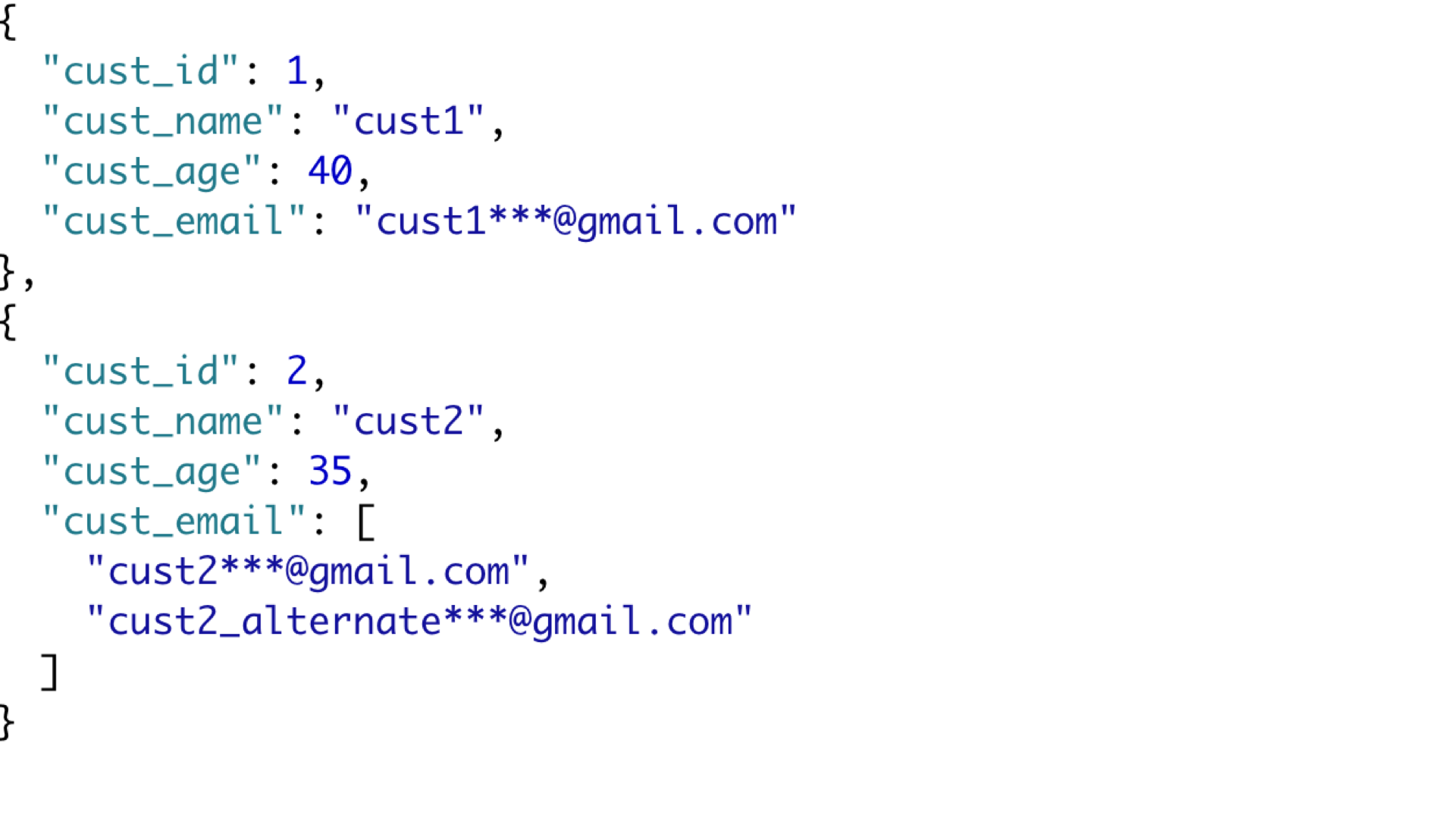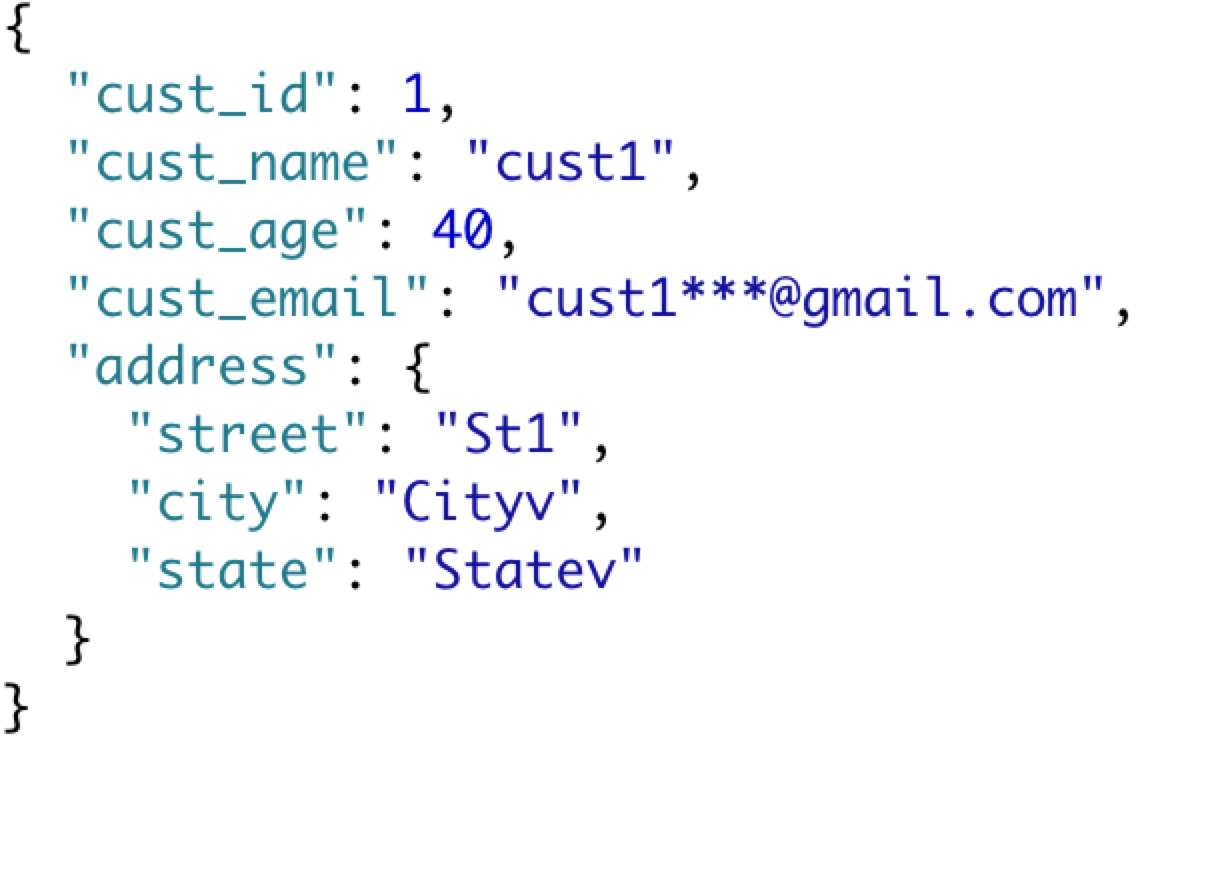Handling semi-structured data
Introduction to Snowflake SQL

George Boorman
Senior Curriculum Manager, DataCamp
Structured versus semi-structured
Example of structured data
| cust_id | cust_name | cust_age | cust_email |
|---------|-----------|----------|-----------------------|
| 1 | cust1 | 40 | cust1***@gmail.com |
| 2 | cust2 | 35 | cust2***@gmail.com |
| 3 | cust3 | 42 | cust3***@gmail.com |
Example of semi-structured data

Introducing JSON
- JavaScript Object Notation
- Common use cases: Web APIs and Config files
- JSON data structure:
- Key-Value Pairs, e.g.,
cust_id: 1
- Key-Value Pairs, e.g.,

JSON in Snowflake
- Native JSON support
- Flexible for evolving schemas
Comparisons:
- Postgres: Uses
JSONB - Snowflake: Uses
VARIANT
How Snowflake stores JSON data
VARIANTsupports OBJECT and ARRAY data types- OBJECT:
{ "key": "value"} - ARRAY:
["list", "of", "values"]
- OBJECT:
- Creating a Snowflake Table to handle JSON data
CREATE TABLE cust_info_json_data ( customer_id INT, customer_info VARIANT -- VARIANT data type );
Semi-structured data functions
PARSE_JSONexpr: JSON data in string format- Returns:
VARIANTtype, valid JSON object
PARSE_JSON
Example:
SELECT PARSE_JSON(
-- Enclosed in strings
'{
"cust_id": 1,
"cust_name": "cust1",
"cust_age": 40,
"cust_email":"cust1***@gmail.com"
}
'-- Enclosed in strings
) AS customer_info_json

OBJECT_CONSTRUCT
OBJECT_CONSTRUCT- Syntax:
OBJECT_CONSTRUCT( [<key1>, <value1> [, <keyN>, <valueN> ...]] ) - Returns: JSON object
- Syntax:
SELECT OBJECT_CONSTRUCT(
-- Comma separated values rather than : notation
'cust_id', 1,
'cust_name', 'cust1',
'cust_age', 40,
'cust_email', 'cust1***@gmail.com'
)

Querying JSON data in Snowflake
Simple JSON
:SELECT customer_info:cust_age, -- Use colon to access cust_age from column customer_info:cust_name, customer_info:cust_email, FROM cust_info_json_data;

Querying nested JSON Data in Snowflake
Example of nested JSON

- Colon:
: - Dot:
.
Querying nested JSON using colon/dot notations
Accessing values using colon notation
<column>:<level1_element>:<level2_element>:<level3_element>
SELECT
customer_info:address:street AS street_name
FROM
cust_info_json_data

Accessing values using dot notation
<column>:<level1_element>.<level2_element>.<level3_element>
SELECT
customer_info:address.street AS street_name
FROM
cust_info_json_data

Let's practice!
Introduction to Snowflake SQL

